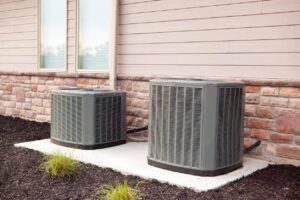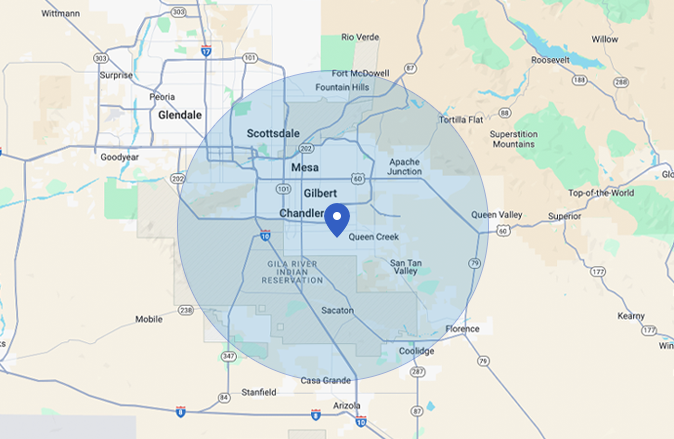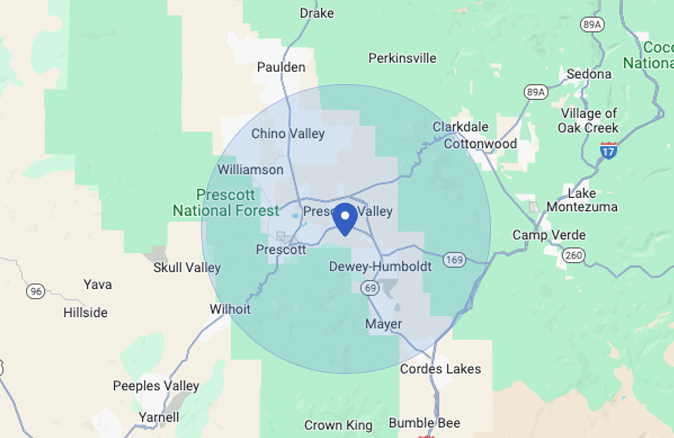
If you live in Arizona, you know just how extreme the temperatures can get, from scorching summer highs to chilly desert nights. To stay comfortable year-round, having an efficient and reliable HVAC system is non-negotiable. But when it comes time to install a new one, you’re probably wondering: what’s the actual new HVAC system cost in Arizona?
In this guide, we’ll walk through average pricing, cost variables, efficiency standards, and what you need to consider before investing. By the end, you’ll be equipped to make an informed decision that fits your comfort needs, and your budget.
Understanding Efficiency Standards in Arizona
When shopping for a new HVAC system, efficiency should be a top priority. Arizona requires all new systems to meet a minimum SEER rating of 15 (Seasonal Energy Efficiency Ratio). This is especially important in a climate that puts HVAC systems to the test nearly year-round.
Additionally, many units must be ENERGY STAR® certified to qualify for federal tax credits, local utility rebates, and other incentives. Investing in an energy-efficient system might cost more upfront, but it typically reduces long-term utility expenses.
A knowledgeable HVAC contractor should help you choose a system that not only meets Arizona’s codes but also helps you capitalize on available incentives, ultimately helping reduce your total HVAC system cost over time.
Average New HVAC System Cost in Arizona
While exact pricing depends on your home and preferences, the average cost of a new HVAC system in Arizona ranges from $3,000 to $7,000. This includes both the air conditioning and heating components of a split system, which is the most common setup in the region.
Here’s a general breakdown of what influences pricing:
-
Basic units (lower SEER ratings): $3,000–$4,000
-
Mid-range systems (SEER 15–17): $4,500–$6,000
-
High-efficiency systems (SEER 18+): $6,000–$7,500+
Homes with more square footage will require more powerful units, which naturally increases the cost. Similarly, advanced features like smart thermostats, variable-speed motors, and zoning capabilities will raise the price but improve long-term performance and comfort.
Key Factors That Impact Your HVAC Installation Cost
1. System Size
HVAC systems are not one-size-fits-all. Your contractor will perform a load calculation to determine the appropriate tonnage based on your home’s square footage, insulation, windows, and other variables. An undersized system may cost less initially but will under-perform and wear out faster. Conversely, an oversized unit can short-cycle, wasting energy and reducing comfort.
2. Type of System
There are several types of HVAC systems to choose from:
-
Split Systems (standard): Common in Arizona, good balance of cost and performance.
-
Packaged Systems: All-in-one units, often used in smaller homes or mobile units.
-
Ductless Mini-Splits: Great for additions or homes without ducts, but can be more expensive per zone.
-
Heat Pumps: Offer both heating and cooling, particularly efficient in mild winter climates like Arizona.
Each type has a different upfront cost and long-term maintenance profile that affects your total HVAC system cost.
3. Installation Complexity
Installation costs can vary widely depending on whether:
-
Ductwork needs replacement or repair
-
The system location (attic, crawlspace, etc.) is difficult to access
-
Electrical or structural modifications are needed
Quality installation is key, cutting corners may lower initial costs but often leads to inefficiency, discomfort, or repairs down the road.
4. Labor Rates and Permits
Licensed HVAC contractors charge based on experience, licensing, and demand in your area. Permits may be required by your local jurisdiction and will be included in the final quote.
Why the Right HVAC Contractor Matters
Finding a licensed, experienced contractor is crucial. An improperly installed unit can reduce efficiency by up to 30%, leading to higher utility bills and a shortened system lifespan.
A good contractor will:
-
Provide a detailed quote
-
Perform a Manual J load calculation
-
Walk you through system options
-
Handle rebate and permit paperwork
-
Offer a satisfaction or performance guarantee
At Wolfgangs, we pride ourselves on delivering high-quality HVAC installations that meet Arizona’s climate demands and efficiency codes.
The Long-Term Value of Investing in a New HVAC System
Although the new HVAC system cost may feel steep, consider it an investment in comfort, air quality, energy efficiency, and property value. With proper maintenance and a high-efficiency unit, most systems can last 15 to 20 years and pay for themselves over time through lower energy bills and fewer repairs.
Plus, installing a new system ahead of extreme weather seasons ensures you’re never left scrambling when your old unit breaks down.
Ready to Upgrade Your HVAC System? Contact Wolfgangs Today!
At Wolfgangs Cooling, Heating & Plumbing, we’re here to guide you through every step, from helping you compare system types to ensuring a smooth, code-compliant installation. We’ve been serving Arizona homeowners with trusted HVAC services for over 20 years.
Contact us today to schedule a consultation or get a quote tailored to your home and needs. Let’s make your home more comfortable, efficient, and future-ready.








